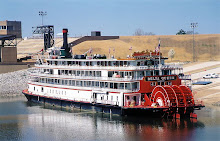







John Mitchell, February 4, 1870–September 9, 1919, was a United States labor leader and president of the United Mine Workers of America from 1898 to 1908. He was born in 1870 in Braidwood, Illinois, a second generation Irish immigrant. He became an orphan when he was only six years old, and began working at that age to support his family. He worked in the coal mines his whole life. When he was nineteen years old, he joined the Knights of Labor in 1885 and was a founding member of the United Mine Workers of America in 1890. He was made an international union organizer in 1897 and worked alongside Mother Jones before being elected an international vice president the same year.
In September 1898, at age 28, Mitchell became acting president of UMWA after president Michael Ratchford resigned to become a member of the United States Industrial Commission.
He served as fourth vice president of the American Federation of Labor (AFL) from 1898 to 1900, and as second vice president from 1900 to 1914 (although he had lost the UMWA presidency in 1908).
Along with AFL Samuel Gompers and AFL secretary-treasurer Frank Morrison, he was sentenced to prison for violating a court injunction during a strike at the Buck Stove and Range Co. in St. Louis, Missouri.
One of Mitchell's earliest challenges in the UMWA was to help incorporate new workers from various ethnicity into the union. There were numerous language barriers, as well as cultural biases and outright prejudice to be overcome. His success in this area helped him become vice-president in 1897, and president one year later.
Labor activity was notoriously dangerous at the time. Just before Mitchell became president, the Lattimer Massacre had seen 19 miners killed by police. This was also a period of growth for the union, the number of members grew almost tenfold, from 34,000 to 300,000, during Mitchell's term. Mitchell engaged in contentious negotiations with mining companies, including one in which President Theodore Roosevelt had to intervene, resulting in an eight-hour workday and a minimum wage. A tributary statue of Mitchell stands on the grounds of the Lackawanna County Courthouse in Scranton, Pennsylvania, the site of the negotiations which President Roosevelt got involved in. Because of the significance of these negotiations, the statue and the Courthouse are considered National Historic Landmarks.
When his successor, Thomas Lewis, won approval of a resolution forcing UMWA members to resign from the National Civic Federation, Mitchell left the union. He continued his association with the federation for many years, as well as serving on a number of state and federal commissions.
Mitchell died in New York City in 1919. Since then the 1st of April has been a miner's paid holiday.

On January 25, 1890, 119 years ago yesterday, hundreds of incredibly brave coal miners from around the country gathered in Columbus, Oh., and voted to establish the United Mine Workers of America. They were of different racial and ethnic backgrounds and spoke different languages, yet all were united by one common purpose: To throw off the yoke of servitude and oppression that defined life for a coal miner–no matter his race or national origin. The battles that followed over the next 119 years echo through our nation’s history books – the Lattimer Massacre and great anthracite strike in northeastern Pennsylvania, the Ludlow Massacre in Colorado, the battle of Blair Mountain in West Virginia and more. Through it all, the UMWA didn’t just survive, it grew. And every American who is in the workforce today benefits from the fights and struggles of our UMWA forefathers. The eight-hour day, overtime after working 40 hours in a week, the end of child labor, employer-provided health care, pensions, safety and health on the job–all of these things American workers take for granted today were first fought for and won by UMWA members. There are those who believe that things will never go back to the way they used to be; that because of advances in labor laws and 'enlightened' employers, workers no longer have to collectively stand up for themselves and their rights on the job. Nothing could be further from the truth.
Harsh and oppressive employers still exist today in abundance, and not just in the coalfields. One only has to open the newspaper or turn on the news to see stories about employers forcing workers to work off the clock, denying overtime pay, engaging in racial and gender discrimination and ignoring safety and health laws and regulations. The fight for justice on the job is far from over.
One hundred nineteen years after our founding, we are still here and still standing up for working families. After all the battles, strikes and lockouts, we are still here. After losing 100,000 killed in mine disasters and another 100,000 killed by black lung, we are still here. We’ve been shot, maimed, burned, beaten, thrown out of our houses, blacklisted, buried alive–but we’re still here.




























3 comments:
Good to see this historic document online. It's important to have it "out there" in these days of confusion and loss of work and rights.
Do you have copies of the Poster by Frederick Douglass for sale. I'd like to buy one. Best and most consise visual expression I've seen for working people.
Hello, the poster image is one I took from an unknown UMWA site. I agree, it is a great poster and the Frederick Douglas quote is wonderfully appropriate.
As the greatgrandson of John Mitchell, The family and I appreciate any update of his legacy that should be remembered by all Americans. He was the greatest Irish American that ever lived!
Richard Collura
(son of Marilyn Mitchell Collura)
Post a Comment